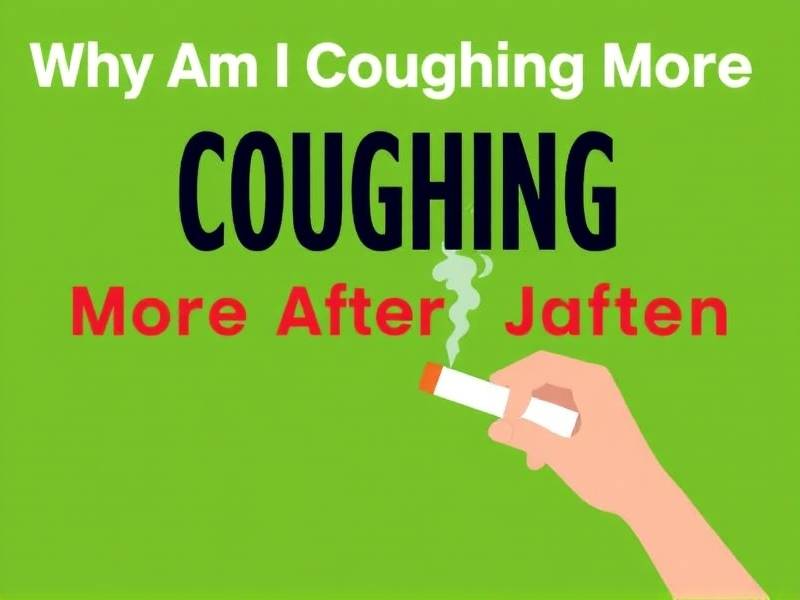Why Am I Coughing More After Quitting Smoking?
Introduction: The Unexpected Side Effect of Quitting Smoking
Quitting smoking is a significant step towards a healthier lifestyle, and many individuals who make this decision experience positive changes in their health. However, one common side effect that can catch smokers off guard is an increase in coughing. This article delves into the reasons behind this phenomenon and provides insights into how to manage it effectively.
Understanding the Link Between Smoking and Coughing
The Role of Tar and Carbon Monoxide
One of the primary reasons why smokers may cough more after quitting is due to the effects of tar and carbon monoxide. Tar, a byproduct of burning tobacco, coats the lungs, causing irritation and inflammation. Carbon monoxide, another harmful substance found in cigarettes, binds to hemoglobin in red blood cells, reducing oxygen delivery to tissues.
When you quit smoking, these substances are no longer present in your body. As a result, your body starts to heal itself from the damage caused by years of smoking. This healing process can sometimes trigger an increase in coughing as your lungs work to expel accumulated tar and mucus.

The Healing Process: A Temporary Phase
The First Few Weeks: A Coughing Spasm
In the first few weeks after quitting smoking, you might experience what's known as a "coughing spasm." This intense coughing is your body's way of clearing out trapped mucus and tar from your respiratory system.
This phase can be quite challenging but is usually short-lived. It's important to remember that this is a sign of improvement rather than a reason to return to smoking.
The Long-Term Healing: A Gradual Reduction in Coughing
As your lungs continue to heal over several months or even years after quitting smoking, you'll likely notice a gradual reduction in coughing. This process varies from person to person but generally becomes less noticeable over time.
Strategies for Managing Post-Quit Coughing
Stay Hydrated
Drinking plenty of fluids helps thin mucus and makes it easier for your body to expel it. Aim for at least eight glasses of water per day.

Use Salt Water Gargles
Salt water gargles can help soothe your throat and reduce inflammation. Dissolve half a teaspoon of salt in a cup of warm water and gargle as needed.
Consider Over-the-Counter Remedies
Over-the-counter cough medicines can provide relief if necessary. Consult with a healthcare professional before starting any new medication.
Conclusion: Embrace the Healing Process
While coughing more after quitting smoking might be unsettling at first, it's an essential part of the healing process. By understanding its causes and implementing effective strategies for managing it, you can navigate this temporary phase with greater ease and move closer to achieving long-term lung health benefits. Remember that every step towards quitting smoking brings you one step closer to better health!
